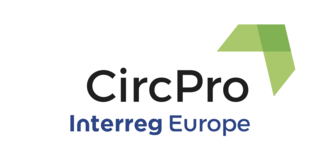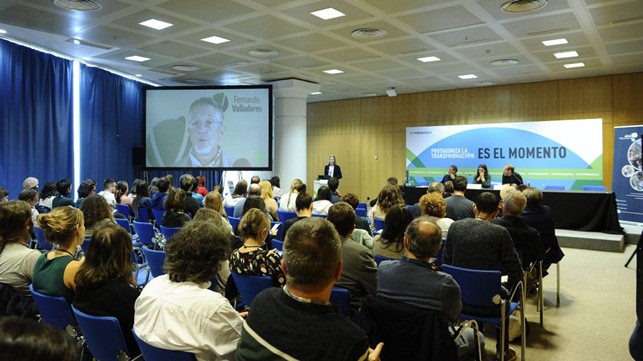Public procurement is a powerful tool for using public money efficiently, economically and strategically and accelerating the movement towards a more sustainable future. If public sector organisations begin to prefer environmentally friendly and circular products and services, it could significantly influence the market and move faster towards climate neutrality and more sustainable use of resources.
This issue was discussed during the final conference of the CircPro project "Enhancing Circular Procurement Practices on the Local Level" on the 25th of January. The event brought together more than 100 procurement professionals, sustainability experts, and local government representatives from across Europe and beyond to discuss ways to improve circular procurement practices at the local level.
Throughout the event, participants exchanged ideas, shared best practices, and listened to inspiring keynote speakers. Discussions centred around the key drivers of circular procurement and the challenges and opportunities of implementing circular procurement practices locally.
"Circularity is crucial." – an idea which marked the core message of the presentation by Ivan Azevedo de Jesus, DG Environment at the European Commission. He reminded how a large amount of greenhouse gas emissions, biodiversity loss and water stress come from resource extraction and processing. However, only 12% of materials used by the EU industry come from recycling. "Circular economy is not only good for the environment but also our economy," Azevedo de Jesus added. He also emphasised the role of regulations and policies in driving circular procurement practices, highlighting the EU's commitment to supporting circular economy action plans, regulations and incentives. The presentation also emphasised procurement professionals’ role in shaping a more sustainable future. It was a reminder of procurement's critical role in driving the transition to a circular economy and the need for continued action and collaboration to achieve this goal.
The importance of collaboration and cross-sector partnerships was one of the key takeaways throughout the event. Presenters emphasised the need for procurement professionals to work closely with suppliers, government agencies, and other stakeholders to drive change and achieve common sustainability goals. The change must come and be led on all levels of governance.
Stockholm Environment Institute senior expert Harri Moora highlighted in his presentation that in addition to supporting implementing circular procurements, especially on the national level, there is a need to set up specific strategic political goals that support the circular economy procurements, but also circularity in general: "We understood during the project that, if you haven't set those strategic goals clearly on the national, regional and municipality level, it's hard to expect that the procurers start to act. The strategic level is essential, and it's great that now we have a circular economy policy and legal framework in Estonia that can support the process on the operational level. "
One of the questions raised during the panel discussion was about the future of green public procurement and whether it should remain voluntary or become mandatory. Professor Gabriella M. Racca from the University of Turin believes that it will become more mandatory. "Right now, the problem is that there is a difference in what is a rule and what is applied. As the perspective of circular economy will develop, the green public procurements will probably become more mandatory," she said. As heard from one of the presentations, Lithuania is an example of an EU country that has made green public procurement mandatory for all purchases since January 2023. However, it still has a long way to go to fulfil the requirement.
The panel discussion also focused on the barriers and opportunities for implementing green public procurement and circular economy. The participants identified the need for awareness and entrenched attitudes as significant barriers and the need for a national circular economy action plan. The current security crisis has made implementing a circular economy more challenging but has also highlighted the need for sustainable solutions.
In conclusion, the event provided valuable insights by the CircPro partners into the current state of circular procurement in their countries and the steps that can be taken to advance these practices. Also, it gave time to reflect on the project results and discuss the impact. Various partners mentioned that the regional awareness of circular procurement and the number of circular procurement processes had increased after the project.
All the presentations are available in the Library section of the website.














